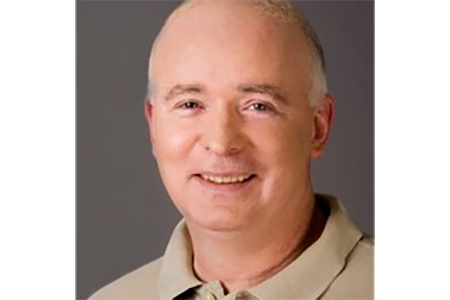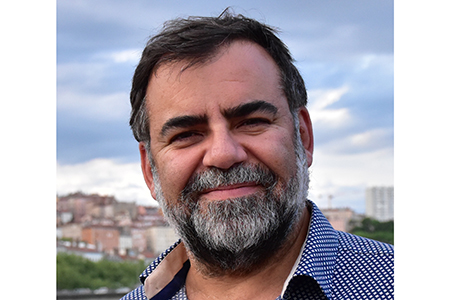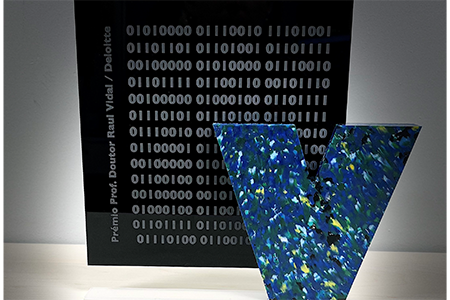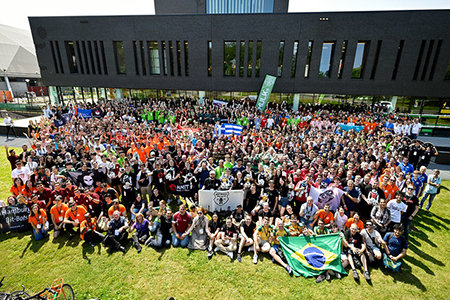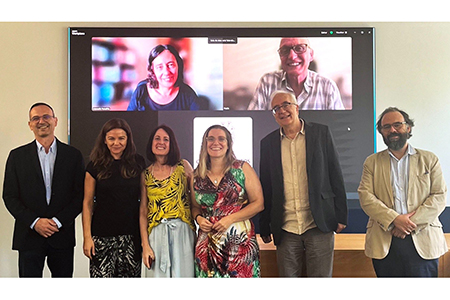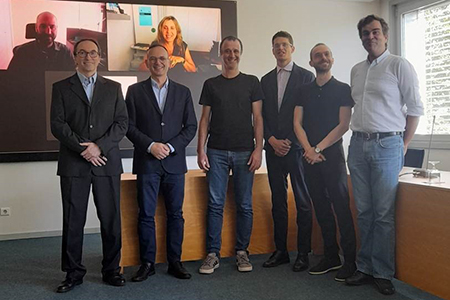Hugo Penedones, the Portuguese who was involved in a project that ended up being awarded a Nobel Prize and who has been talked about a lot, is not an unknown Portuguese to us.
Born in Chaves and a graduate of Dr Júlio Martins Secondary School, Hugo spent five years (2000-2005) at LEIC – Bachelor in Informatics and Computing Engineering (recently celebrated 30 years since its creation), where he graduated as the best student in his year.
Before embarking on this adventure, the LEIC graduate spent four years at Google DeepMind (London, UK), during which time he was part of the Alphafold project’s initial team, contributing to the first artificial intelligence model to predict the structure of proteins, which led to the article “Improved protein structure prediction using potentials from deep learning“, published in Nature in January 2020, co-authored with the now Nobel Prize-winning chemists John M. Jumper and Demis Hassabis (among others).
The Alphafold model has been developed over the past few years ‘and has been able to predict the structure of virtually all of the 200 million proteins that researchers have identified. Since its discovery, it has been used by more than two million people in 190 countries. Among its many scientific applications, researchers can now better understand antibiotic resistance and create images of enzymes that can break down plastic. Without proteins, life could not exist. The fact that we can now predict protein structures and design our own proteins is of the greatest benefit to mankind,’ can be read at the Nobel Prize press release.
The 2024 Nobel Prize in Chemistry was awarded on 9 October to David Baker for the near-impossible feat of building entirely new types of proteins, and to Demis Hassabis and John Jumper jointly for developing an AI model to solve a 50-year-old problem: predicting the complex structures of proteins.
In the speeches of Demis Hassabis and John Jumper, transcribed below in this order, it is clear that this achievement is due to all the team members, past and present, whose exceptional work has made this result possible. The enthusiasm and curiosity of Hugo Penedones, recalled here in his talk at Commit 2018 (an annual event organised by AlumniEI), is proof that this recognition is also his.
“Receiving the Nobel Prize is the honour of a lifetime. Thank you to the Royal Swedish Academy of Sciences, to John Jumper and the AlphaFold team, the wider DeepMind and Google teams, and to all my colleagues past and present that made this moment possible. I’ve dedicated my career to advancing AI because of its unparalleled potential to improve the lives of billions of people. AlphaFold has already been used by more than two million researchers to advance critical work, from enzyme design to drug discovery. I hope we’ll look back on AlphaFold as the first proof point of AI’s incredible potential to accelerate scientific discovery.”
“Thank you to the Royal Swedish Academy of Sciences for this extraordinary honor. We are so honored to be recognized for delivering on the long promise of computational biology to help us understand the protein world and to inform the incredible work of experimental biologists. It is a key demonstration that AI will make science faster and ultimately help to understand disease and develop therapeutics. This is the work of an exceptional team at Google DeepMind and this award recognizes their amazing work.
Computational biology has long held tremendous promise for creating practical insights that could be put to use in real-world experiments. AlphaFold delivered on this promise. Ahead of us are a universe of new insights and scientific discoveries made possible by the use of AI as a scientific tool. Thank you to my colleagues over the years, for making possible this moment of recognition, as well as the many moments of discovery that lie ahead.”
Hugo Penedones is currently the co-founder and Chief Technology Officer (CTO) of Inductiva.AI, a Portuguese start-up that provides an application development interface (API) that allows research labs and companies to use the start-up’s AI algorithms to run simulations. The applications for Inductiva’s technology are myriad, ranging from drug design to aerospace parts, mechanical engineering, route optimisation and more. At the end of last year, the startup – which, in addition to Hugo Penedones, has the other two co-founders on its board of directors, Luís Sarmento (ProDEI alumnus) as CEO, and Clara Gonçalves as COO – received an investment of 2.25 million euros, which has allowed it to invest in new technology and expand its customer base.



